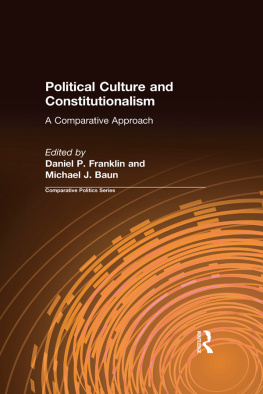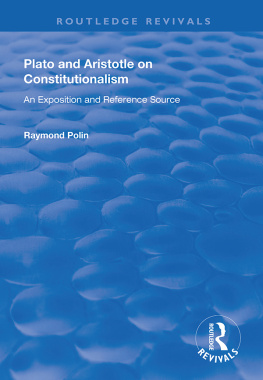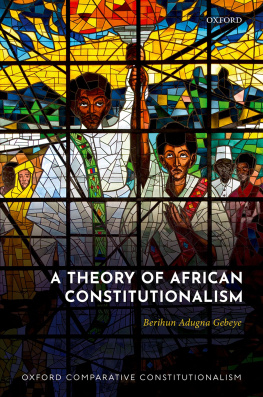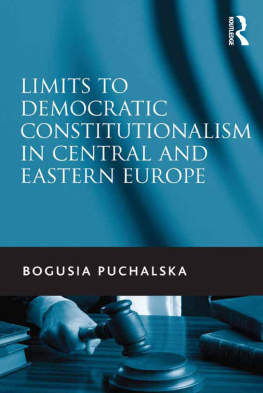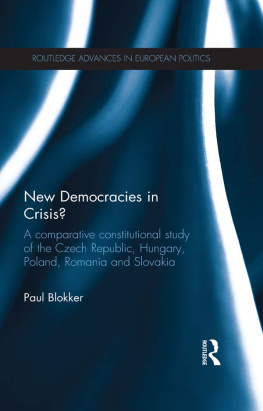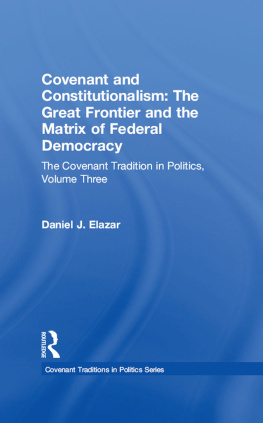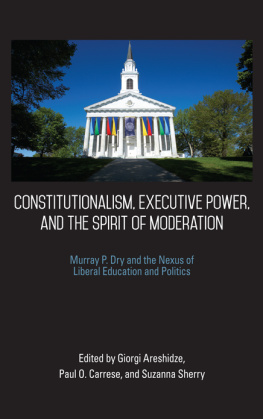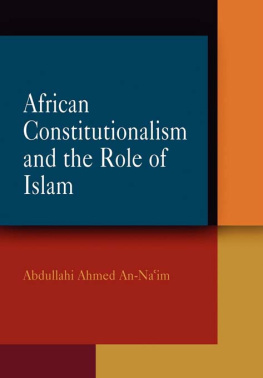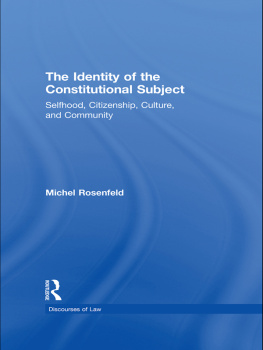POLITICAL
CULTURE AND
CONSTITUTIONALISM
COMPARATIVE
POLITICS
SERIES
Gregory S. Mahler, Editor
POWER AND RITUAL IN THE ISRAEL LABOR PARTY
A Study in Political Anthropology
Myron J. Aronoff
COMPARATIVE POLITICAL SYSTEMS
Policy Performance and Social Change
Charles F. Andrain
DEMOCRATIC LEGISLATIVE INSTITUTIONS
A Comparative View
David M. Olson
BLAMING THE GOVERNMENT
Citizens and the Economy in Five European Democracies
Christopher Anderson
POLITICAL CULTURE AND CONSTITUTIONALISM
A Comparative Approach
Edited by Daniel P. Franklin and Michael J. Baun
COMPARATIVE
POLITICS
SERIES
POLITICAL
CULTURE AND
CONSTITUTIONALISM
A Comparative
Approach
DANIEL P. FRANKLIN
MICHAEL J. BAUN
Editors
First published 1995 by M.E. Sharpe
Published 2015 by Routledge
2 Park Square, Milton Park, Abingdon, Oxon OX14 4RN
711 Third Avenue, New York, NY 10017, USA
Routledge is an imprint of the Taylor & Francis Group, an informa business
Copyright 1995 Taylor & Francis. All rights reserved.
No part of this book may be reprinted or reproduced or utilised in any form or by any electronic, mechanical, or other means, now known or hereafter invented, including photocopying and recording, or in any information storage or retrieval system, without permission in writing from the publishers.
Notices
No responsibility is assumed by the publisher for any injury and/or damage to persons or property as a matter of products liability, negligence or otherwise, or from any use of operation of any methods, products, instructions or ideas contained in the material herein.
Practitioners and researchers must always rely on their own experience and knowledge in evaluating and using any information, methods, compounds, or experiments described herein. In using such information or methods they should be mindful of their own safety and the safety of others, including parties for whom they have a professional responsibility.
Product or corporate names may be trademarks or registered trademarks, and are used only for identification and explanation without intent to infringe.
Library of Congress Cataloging-in-Publication Data
Political culture and constitutionalism : a comparative approach /
edited by Daniel P. Franklin and Michael J. Baun.
p. cm. (Comparative politics series)
Includes bibliographical references and index.
ISBN 1-56324-415-2 (hardcover). ISBN 1-56324-416-0 (pbk.)
1. Comparative government.
2. Political culture.
3. Constitutional law.
I. Franklin, Daniel P. II. Baun, Michael J. III. Series.
JF51.P633 1994
320.3dc20 94-29697
CIP
ISBN 13: 9781563244162 (pbk)
ISBN 13: 9781563244155 (hbk)
Contents
William B. Gwyn
Daniel P. Franklin
Gregory S. Mahler
Michael J. Baun
John O. Haley
Howard J. Wiarda
Marcie J. Patton
Sankaran Krishna
Nathan J. Brown and Roni Amit
Rotimi T. Suberu
During the 1992 meeting of the American Political Science Association in Chicago, Professor Michael Baun and I shared our experiences that led to the writing of this book. Mike and I rarely attend the same panels at professional conventions because of our differing research foci, his on Western Europe and mine on the United States. But in our discussions we discovered a common thread and a common concern. In 1992 there was great excitement among political scientists who were finally getting an opportunity to exercise their skills in an applied setting. Hundreds of them were being invited to Eastern Europe and the newly independent republics of the former Soviet Union to consult on the building of democratic institutions. I had been on such a trip to Azerbaijan, a former Soviet republic on the shores of the Caspian Sea. Mike had traveled extensively throughout Eastern Europe and, particularly, the former German Democratic Republic.
The conclusion we each arrived at, separately, as the result of our travels and attendance at the panels of the conference was that, somehow, much of this excitement over the democratization of the former Soviet bloc was missing the point. It seemed to us that in the absence of societal conditions antecedent to the establishment of democratic institutions, much of the effort spent in consulting with the governments of those countries was being wasted. Far be it from us to deny the importance of the institutional approach to state building, but such an approach seems most appropriate in the presence of conditions already conducive to the building of democratic political institutions. The more interesting question for us concerned the nature of the conditions necessary for the building of a democratic state.
In discussing this problem, we began to reflect on the different societal factors that might be crucial to the building of a democratic state. In my experience I have found that there needs to exist in a democratic state a willingness on the part of its citizens to obey the law voluntarily. That willingness is based on a sense that actions of government are legitimate, responsive to popular consent, and subject to appeal pursuant to established procedures for control. Such a system in which the rule of law rests largely on voluntary obedience could best be termed a constitutional state. In the constitutional state the rule of law prevails, not because the courts or police say it should, but because there exists a general acceptance of and confidence in the law. For a society to achieve such a constitutional state requires a complex interplay of political, social, and economic developments.
Mike and I found that, because of our specializations, our range of experience was too limited to make any generally applicable statements about the development of the constitutional state. We resolved to explore the question further by soliciting the input of experts who focus on different parts of the world and publishing the results in this book. To standardize our approach, we designed a questionnaire intended to guide our coauthors to follow a script without being so restrictive as to determine the content of their responses. We leave it to the judgment of our readers as to whether we have been successful.
For me this project has been one of the most meaningful and enlightening of my professional career. Mike has expressed the same sentiments. We have found it to be compelling in at least two regards. First, we have had a chance to examine from a cross-national perspective the establishment of a constitutional state in a set of cases disparate both in geography and in stages of development. In addition, we have had a chance to revisit our own specialties from a different, fresh perspective. It has been particularly important for me to step back from the minutiae of American politics to reexamine the conclusions of Tocqueville, Herz, and Hofstadter, among others. I hope that those, particularly Americans, who read my chapter in this book will also step back for a moment to consider the state of development of American political culture both in a temporal and in a comparative perspective.
We would like to thank our coauthors, who have so graciously agreed to participate in this project. I am told that editing a collected volume can be a frustrating and taxing experience. But it was not so for Mike and me. Our coauthors were prompt and careful in the crafting of their chapters. We would also like to thank Larry Diamond and others in the academic community who have commented on and encouraged us in our efforts. In addition, we would like to thank our colleagues at Georgia State University for their support and, in particular, Glenn Abney, chair of the Department of Political Science, for his assistance and encouragement. We would also like to thank Michael Weber, Aud Thiessen, and Eileen Gaffhey of M. E. Sharpe for their advice and encouragement. Finally, Mike Baun would like to thank Julia, without whose patience and understanding this book would not have been possible.

